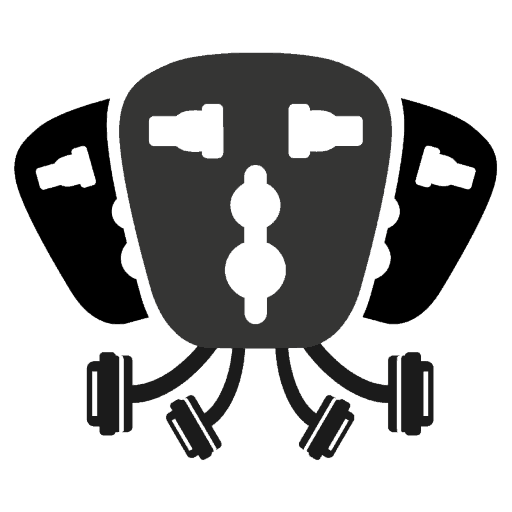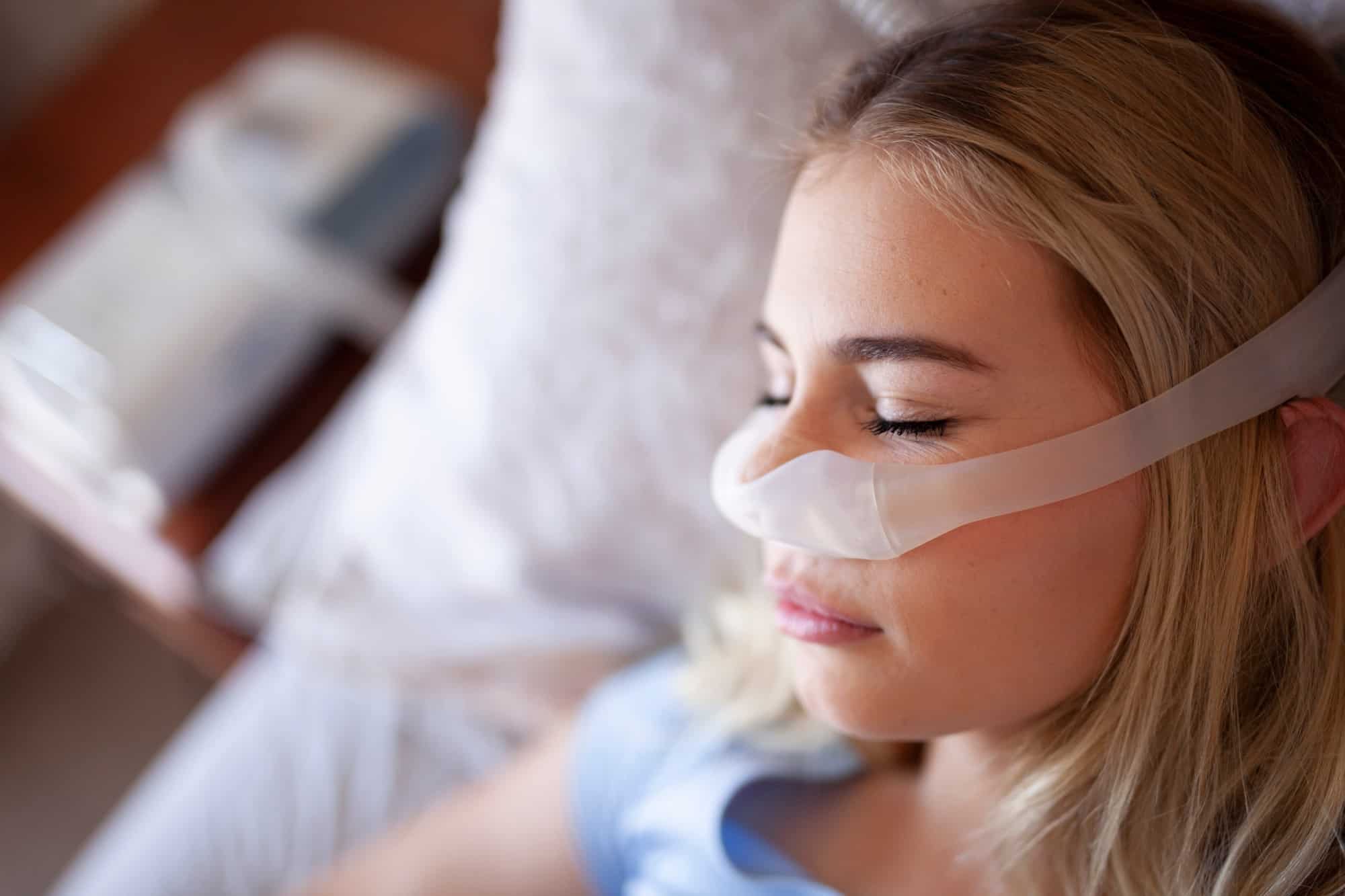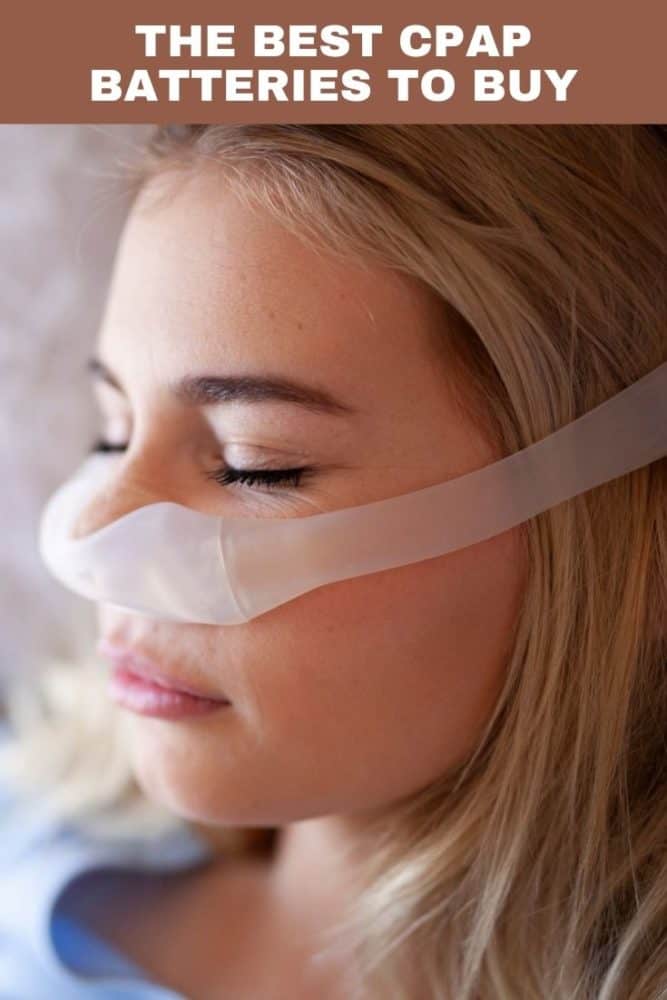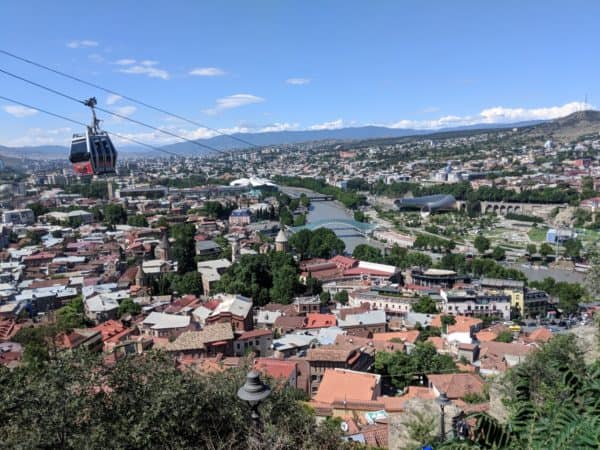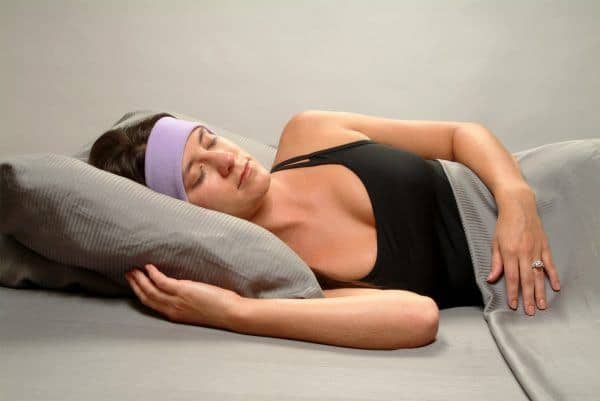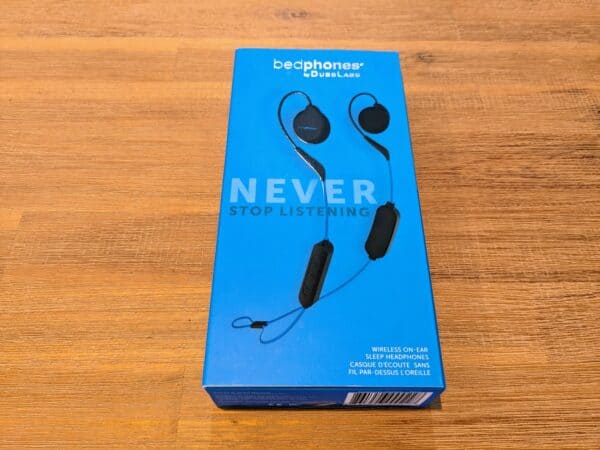The Best CPAP Batteries for Travel and Camping
We may earn a commission from purchases you make after clicking links on this site. Learn more.As we all know, getting enough quality sleep is extremely important to our overall health. For millions of people with sleep apnea, this often means using a Continuous Positive Airway Pressure machine (CPAP) every night.
Sleep apnea is quite common, thought to affect around 3-7% of adult men and 2-5% of adult women in the United States. CPAPs are the most effective form of treatment for sleep apnea, and for best effect, they must be used every single night.
What happens, though, when the power goes out? For most CPAP users, this means a night of tossing and turning, having many apnea episodes that disrupt sleep. Camping and traveling to remote areas with inconsistent power also becomes difficult, if not impossible.
Fortunately, there’s a solution: a CPAP battery.
CPAP batteries are large power banks that have sufficient capacity and power output to run a CPAP for at least one night (and often longer). Many are specifically designed for use with CPAPs, while others are general-purpose batteries that can be adapted for this purpose.
When picking the best CPAP battery for your particular needs, there are several things to consider:
- Total capacity: this is typically measured in watt hours (Wh) and/or milliamp hours (mAh).
- Size and weight: is the battery weight suitable for hiking with, or is it only appropriate for drive-in camping?
- Expected runtime for a given CPAP machine: look for runtimes both with and without the humidifier in use; most manufacturers list runtimes without humidifiers by default.
- Value: put simply, does the battery provide good value for money given its capabilities?
You’ll also need to make sure your specific CPAP machine is compatible with the battery, and check to see if an adapter or special cord is needed. If it is, and it’s not included with the battery, make sure it’s easily available for purchase.
When it comes to advertised CPAP run time, always take these with a grain of salt. Manufacturers will claim certain times, and reviewers may also comment on performance with their specific machines.
The reality is that the runtime you experience is highly specific, not only to your machine but to the type of power output (AC vs DC), the CPAP accessories you use (humidifier, heated hoses, etc), and even the settings/pressure of the CPAP machine itself.
As a rule, DC power is more efficient than AC when running your CPAP machine from a battery. A few batteries come with adapters for popular CPAP models, with others widely available from either the battery manufacturer or third parties.
There are many CPAP batteries available, and they’re not all created equal. That’s why we’ve created this buying guide, covering everything from compact battery packs suitable for plane travel to huge power banks that can run a CPAP machine for days.
Whatever your needs, these are the best CPAP batteries available on the market today.
- Weight: 4.1 pounds (1.9 kg)
- Capacity: 82,500mAh/297wh
- Outputs: DC, USB-A
- Approximate max runtime: 5-6 nights
- DC adapters included? Yes
- Extras: None
- Weight: 7.7 pounds (3.5 kg)
- Capacity: 78,000mAh/280Wh
- Outputs: AC, DC, 12v DC accessory port, USB-A QC, USB C PD
- Approximate max runtime: 2-4 nights
- DC adapters included? No
- Extras: Solar chargeable (panels sold separately)
- Weight: 5.6 pounds (2.6 kg)
- Capacity: 60,000mAh/222Wh
- Outputs: AC, DC, USB-A QC
- Approximate max runtime: 2-3 nights
- DC adapters included? No
- Extras: Solar chargeable (panels sold separately), car charging included
- Weight: 13.3 pounds (6 kg)
- Capacity: 140,000mAh/518Wh
- Outputs: AC, DC, USB-A
- Approximate max runtime: one week
- DC adapters included? No
- Extras: Solar chargeable (panels sold separately), LED light
- Weight: 1.3 pounds (0.6 kg)
- Capacity: 95wh
- Outputs: DC, USB-A
- Approximate max runtime: 1 night
- DC adapters included? No
- Extras: Soft travel case
Best CPAP Battery: MAXOAK CPAP Battery

The MAXOAK CPAP Battery is specifically designed for use with CPAP machines, with an impressive 82500mAh/297Wh capacity given its size and weight. The manufacturer claims that this is sufficient to power a CPAP for 45-50 hours without the humidifier or heated hose.
For most people, this would mean 5-6 nights of power for a CPAP with no humidifier, and 1-2 nights if using a humidifier. Keep in mind that the battery’s capacity is well over the TSA’s limit, so it can’t be taken onboard airplanes in either checked or carry-on luggage.
It has ports for several different voltage outputs (check your CPAP manual or the MAXOAK manual to see which one to use), as well as a standard USB outlet for mobile electronics. So, while it’s designed for CPAP use, it can also be used to power and charge other devices.
I own this battery pack, and have used it for camping trips over the last several years. In my experience, the capacity claims are close to accurate. The MAXOAK has enough juice to power my ResMed S9 for at least four nights (of 7+ hours each), possibly more.
This is without the heated humidifier. With the humidifier attached, it would likely last around 1.5 nights, although I haven’t fully tested this. I once used it with humidification for a full night, and the battery had roughly 30% capacity left.
Unlike many options on this list, the MAXOAK doesn’t have a standard AC plug outlet to plug your CPAP’s power bank into. Instead, you’ll need a specialized DC adapter.
The unit comes with adapters for the ResMed AirSense and AirCurve 10, the ResMed S9, the Philips System One/HDM Z1, the DreamStation, and the Transcend Mini. Adapters may be available for other machines, but must be purchased separately from third-party manufacturers.
The requirement to have a specific DC adapter cable is a bit of a downside, but it’s one of the reasons that the relatively compact MAXOAK battery is so efficient and lasts as long as it does. It weighs just 4.1lbs, compared to 7+ lbs for many options on this list.
In many cases, the adapters also eliminate the need to carry your CPAP’s power brick with you, further cutting down on weight and bulk while traveling or camping.
In my view, this is the best CPAP machine battery on the market today: fairly priced, reasonably portable, and complete with a 12-month warranty in the event of any problems.
Pros
- Compatible with most popular CPAP models
- 82500mAh capacity provides power for up to 50 hours of continuous CPAP use
- Comes with adapters for many CPAP models
- Good portability for its capacity
- Includes USB output: 5V 2.5A for charging smartphones, tablets, etc.
Cons
- Not TSA-approved for taking onto airplanes
- You may need to purchase a third-party adapter if the included ones don’t cover your model of CPAP
Best CPAP Battery for Drive-In Camping: ROCKPALS Portable Power Station

The ROCKPALS Portable Power Station is a good choice for CPAP users who camp frequently. Its rugged design stands up to bumps and drops fairly well, although you’ll still need to keep it dry in the tent!
For longer trips, it even has the ability to charge via solar panels (sold separately), meaning that you could theoretically utilize this for off-grid CPAP use for quite a while.
This isn’t a CPAP-specific battery, but is instead intended to be an all-purpose power station. To that end, it has a wide range of different outputs: 110V AC, 12v car accessory port, two DC ports, two USB 3.1A ports, one QC 3.0 USB port, and one USB C PD port.
The AC outlet can be used to power most CPAPs, but is inefficient and will drain the battery fairly quickly. For the best results, you’ll need a DC adapter for your machine, which is sold separately. ROCKPALS makes its own adapters for a few popular CPAP models, and third-party versions are widely available.
The capacity of this power station is 280Wh, just slightly less than the MAXOAK listed above. ROCKPALS doesn’t make specific claims as to how long this unit will power CPAP machines, and the performance will ultimately depend on the type of machine, its settings, and whether or not the DC adapter is used.
That said, the capacity is likely enough for one night of use without the DC adapter (using AC), and 2-4+ nights with a DC adapter, depending on machine settings and without humidification.
Overall, this is a versatile battery with plenty of useful features for campers. The main downsides are that the solar charging feature requires separate solar panels (they aren’t built-in), and that most CPAP users will want to purchase a DC adapter to make this battery much more efficient.
The size and weight also means this is best used at campsites you can drive to rather than those you need to hike long distances in to. If you want even longer time between charges, check out the Jackery models discussed below.
Pros
- Rugged design is suitable for camping use
- Solar charging option
- Efficient recharging methods
- Easy-carry handle
Cons
- Solar charging requires solar panels, sold separately
- DC adapters (sold separately) are needed for efficient CPAP operation
- Not TSA compatible
Runner-Up, Best CPAP Battery for Drive-In Camping: FlashFish 300W Solar Generator

The FlashFish 300W Solar Generator is a moderate-capacity battery power bank that offers plenty of versatility at a relatively affordable price.
Its capacity is slightly lower than most on this list: 222Wh, or 60,000mAh. With a DC adapter, this should be sufficient for 2-3 nights of CPAP use without a humidifier, and around one night with one. Again, it all depends on the specific machine you use, the settings you’re using, and the severity of your sleep apnea.
Like the ROCKPALS battery above, this unit can power CPAPs via the standard 110V AC plug, but it’s more efficient to use the 12V DC port with an adapter (sold separately by third-party manufacturers). There are two DC output ports, two QC 3.0 USB ports, and one 5V/2.4A USB port, so you can use this battery to charge a variety of mobile devices.
Benefits of this generator include a relatively portable design (5.6lbs, with a carry handle), and its versatility when it comes to charging. It can be charged off solar panels (sold separately), from a normal wall socket, or in the car (charger included).
Downsides are quite similar to the ROCKPALS unit: the battery isn’t TSA compatible, solar panels are sold separately, and you’ll want a DC converter for maximum CPAP runtime.
Pros
- Lightweight for its capacity (weighs 5.6 lb)
- Carry handle for easy transportation
- Power via 110V AC Plug or 12V DC Plug
- Budget-friendly
- Can be charged from solar panels
- Car charger included
Cons
- Requires third-party DC converter for maximum efficiency
- Solar panels sold separately
- Not TSA compatible
Best Battery Backup for CPAP: Jackery Explorer 500 Power Station

While many CPAP users are looking for a battery for camping, others simply want one to keep at home as a backup in case of power outages. For this purpose, the Jackery Explorer 500 Power Station is a great option.
At 518wh/140,000mAh, this unit can power a CPAP for anything up to a week, assuming you’re using DC (adapters are sold separately by third parties). Some machines, particularly when used without humidification, could stretch that number even further.
A range of ports makes this a versatile charging option across many devices beyond just a CPAP. It includes a 500W AC plug, two DC output ports, three standard USB ports, and a car/cigarette adapter socket that lets you connect anything you’d usually power from your vehicle.
The unit also has a built-in flashlight, which is handy for power outages and other emergencies. It’s rechargeable via solar panels, which you can buy separately from Jackery or as part of a bundle. Anything from an 80W to a 200W panel will work: the larger the number, the larger the size (and price) but the quicker it’ll charge.
At the risk of sounding like a broken record, the downside of this unit is largely the same as most other non-CPAP-specific batteries: a DC adapter will be required to get the most efficiency from it. Given the high capacity and ability to charge from solar panels, however, it’s less of an issue than usual.
We reviewed the big brother of this unit, the Jackery Explorer 1000, a while back, and came away very impressed. It’s got a few extra features that make it an even more useful piece of kit, so if your budget extends that far and you can see uses beyond powering your CPAP machine, go for that model instead.
Note: you’ll get 10% off on the Jackery store with the promo code JADEAL
Pros
- High capacity
- Power CPAP via 110V AC Plug or 12V DC Plug
- 12-month warranty
- Built-in LED lighting and flashlight for emergencies
- Solar rechargeable
Cons
- Solar panel sold separately
- Not TSA compatible
- Relatively big and heavy
Get regular updates from the world of travel tech and remote work
News, reviews, recommendations and more, from here and around the web
Best CPAP Battery for Travel: Medistrom Pilot-24 Lite CPAP Battery

For those looking for a truly portable, nearly pocket-sized CPAP battery, the Medistrom Pilot-24 Lite is just that. At just 1.3lbs and measures 6.7″ x 3.5″ x 0.8″, this unit is much smaller and lighter than our other recommendations.
The Pilot-24 Lite is compatible with most popular CPAP units, but you’ll need to purchase DC adapters separately, sold by both the manufacturer and third-party companies.
As expected, capacity is sacrificed in the pursuit of a more portable design, with the Pilot-24 Lite holding around a third of the charge of larger CPAP batteries.
At 95Wh, however, it’s still a substantial amount, and you can expect this unit to power a standard CPAP (with the humidifier and heated tubing turned off) for around one night. The manufacturer claims “1-2 nights” for most units.
The smaller capacity of this unit also means that it’s relatively fast to charge: using a wall outlet, the Pilot-24 Lite gets back to 100% in 2-3 hours. For travelers and thru-hikers, being able to charge this battery quickly when time or power sockets are in short supply makes a big difference.
One major benefit of this unit is that it just squeaks under the 100Wh TSA limit for batteries that can be taken onto airplanes. This means that you can bring the battery onboard, and if the airline allows it, you can even use it to get some sleep on long-haul flights.
The downside, of course, is that it has noticeably less capacity than the bigger batteries on this list. It’s best used as a travel unit, rather than a camping or backup CPAP battery.
If you don’t need to save every last minute of that battery life for the CPAP machine, the Pilot-24 Lite also has a 5v USB-A socket for charging mobile devices, and an inbuilt flashlight for navigating around a pitch-black campsite.
Pros
- Lightweight, compact design
- TSA-approved for taking on airplanes
- Can power a CPAP for 1-2 nights (with humidifier, heated tubing, etc. turned off)
- Comes with soft travel bag
- Has inbuilt flashlight and USB-A charging socket
Cons
- Requires device-specific adapter kit for most CPAP models
- Much lower capacity than full-size CPAP batteries
- Somewhat expensive
Main image via IndependenceProject/Shutterstock, product images via Amazon
